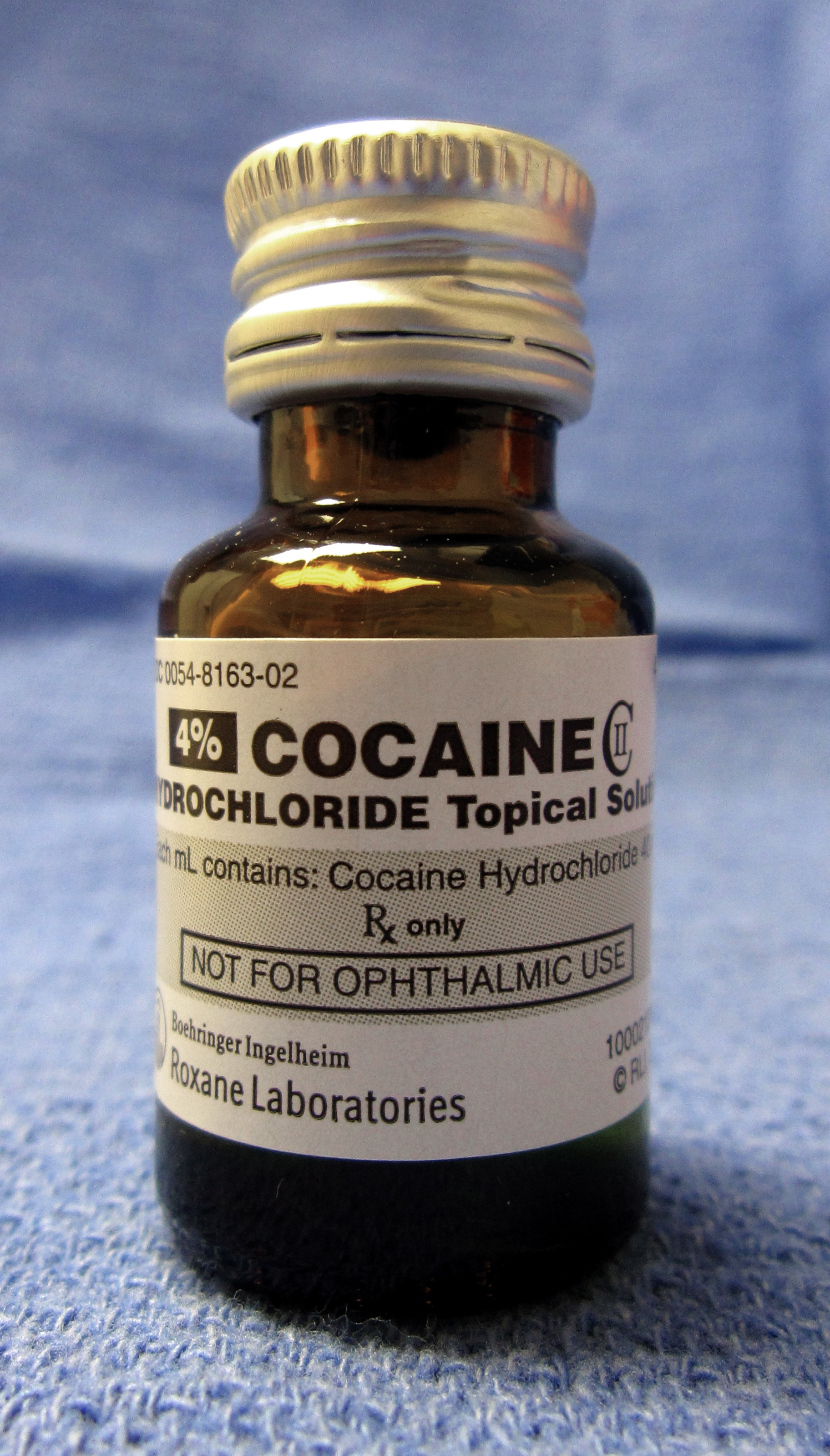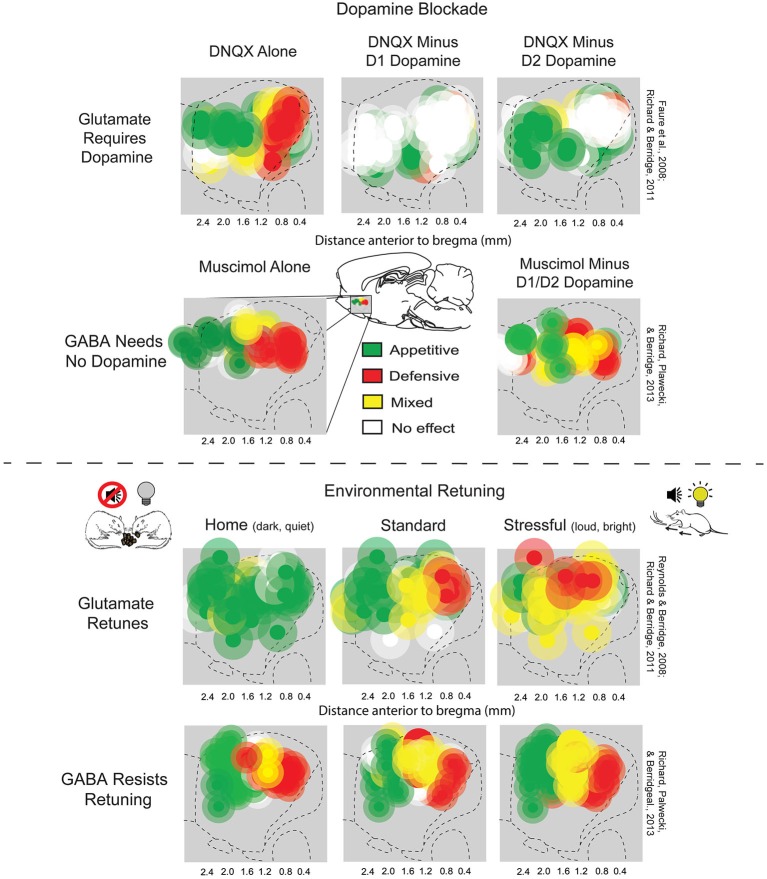|
Euphoria
Euphoria ( ) is the experience (or affect) of pleasure or excitement and intense feelings of well-being and happiness. Certain natural rewards and social activities, such as aerobic exercise, laughter, listening to or making music and dancing, can induce a state of euphoria. Euphoria is also a symptom of certain neurological or neuropsychiatric disorders, such as mania. Romantic love and components of the human sexual response cycle are also associated with the induction of euphoria. Certain drugs, many of which are addictive, can cause euphoria, which at least partially motivates their recreational use. Hedonic hotspots – i.e., the pleasure centers of the brain – are functionally linked. Activation of one hotspot results in the recruitment of the others. Inhibition of one hotspot results in the blunting of the effects of activating another hotspot. Therefore, the simultaneous activation of every hedonic hotspot within the reward system is believed to be ... [...More Info...] [...Related Items...] OR: [Wikipedia] [Google] [Baidu] |
Cocaine
Cocaine (from , from , ultimately from Quechuan languages, Quechua: ''kúka'') is a central nervous system (CNS) stimulant mainly recreational drug use, used recreationally for its euphoria, euphoric effects. It is primarily obtained from the leaves of two Coca species native to South America, ''Erythroxylum coca'' and ''Erythroxylum novogranatense''. After extraction from coca leaves and further processing into cocaine hydrochloride (powdered cocaine), the drug is often Insufflation (medicine), snorted, applied topical administration, topically to the mouth, or dissolved and injection (medicine), injected into a vein. It can also then be turned into free base form (crack cocaine), in which it can be heated until sublimated and then the vapours can be smoking, inhaled. Cocaine stimulates the mesolimbic pathway, reward pathway in the brain. Mental effects may include an euphoria, intense feeling of happiness, sexual arousal, psychosis, loss of contact with reality, or psychomo ... [...More Info...] [...Related Items...] OR: [Wikipedia] [Google] [Baidu] |
Reward System
The reward system (the mesocorticolimbic circuit) is a group of neural structures responsible for incentive salience (i.e., "wanting"; desire or craving for a reward and motivation), associative learning (primarily positive reinforcement and classical conditioning), and positively-valenced emotions, particularly ones involving pleasure as a core component (e.g., joy, euphoria and ecstasy). Reward is the attractive and motivational property of a stimulus that induces appetitive behavior, also known as approach behavior, and consummatory behavior. A rewarding stimulus has been described as "any stimulus, object, event, activity, or situation that has the potential to make us approach and consume it is by definition a reward". In operant conditioning, rewarding stimuli function as positive reinforcers; however, the converse statement also holds true: positive reinforcers are rewarding. The reward system motivates animals to approach stimuli or engage in behaviour that increases ... [...More Info...] [...Related Items...] OR: [Wikipedia] [Google] [Baidu] |
Hedonic Hotspot
The reward system (the mesocorticolimbic circuit) is a group of neural structures responsible for incentive salience (i.e., "wanting"; desire or craving for a reward and motivation), associative learning (primarily positive reinforcement and classical conditioning), and positively-valenced emotions, particularly ones involving pleasure as a core component (e.g., joy, euphoria and ecstasy). Reward is the attractive and motivational property of a stimulus that induces appetitive behavior, also known as approach behavior, and consummatory behavior. A rewarding stimulus has been described as "any stimulus, object, event, activity, or situation that has the potential to make us approach and consume it is by definition a reward". In operant conditioning, rewarding stimuli function as positive reinforcers; however, the converse statement also holds true: positive reinforcers are rewarding. The reward system motivates animals to approach stimuli or engage in behaviour that increases ... [...More Info...] [...Related Items...] OR: [Wikipedia] [Google] [Baidu] |
Mania
Mania, also known as manic syndrome, is a mental and behavioral disorder defined as a state of abnormally elevated arousal, affect, and energy level, or "a state of heightened overall activation with enhanced affective expression together with lability of affect." During a manic episode, an individual will experience rapidly changing emotions and moods, highly influenced by surrounding stimuli. Although mania is often conceived as a "mirror image" to depression, the heightened mood can be either euphoric or dysphoric. As the mania intensifies, irritability can be more pronounced and result in anxiety or anger. The symptoms of mania include elevated mood (either euphoric or irritable), flight of ideas and pressure of speech, increased energy, decreased need and desire for sleep, and hyperactivity. They are most plainly evident in fully developed hypomanic states. However, in full-blown mania, they undergo progressively severe exacerbations and become more and more obscured by ... [...More Info...] [...Related Items...] OR: [Wikipedia] [Google] [Baidu] |
Addiction
Addiction is a neuropsychological disorder characterized by a persistent and intense urge to engage in certain behaviors, one of which is the usage of a drug, despite substantial harm and other negative consequences. Repetitive drug use often alters brain function in ways that perpetuate craving, and weakens (but does not completely negate) self-control. This phenomenon – drugs reshaping brain function – has led to an understanding of addiction as a brain disorder with a complex variety of psychosocial as well as neurobiological (and thus involuntary) factors that are implicated in addiction's development. Classic signs of addiction include compulsive engagement in rewarding stimuli, ''preoccupation'' with substances or behavior, and continued use despite negative consequences. Habits and patterns associated with addiction are typically characterized by immediate gratification (short-term reward), coupled with delayed deleterious effects (long-term costs). Examp ... [...More Info...] [...Related Items...] OR: [Wikipedia] [Google] [Baidu] |
Pleasure
Pleasure refers to experience that feels good, that involves the enjoyment of something. It contrasts with pain or suffering, which are forms of feeling bad. It is closely related to value, desire and action: humans and other conscious animals find pleasure enjoyable, positive or worthy of seeking. A great variety of activities may be experienced as pleasurable, like eating, having sex, listening to music or playing games. Pleasure is part of various other mental states such as ecstasy, euphoria and flow. Happiness and well-being are closely related to pleasure but not identical with it. There is no general agreement as to whether pleasure should be understood as a sensation, a quality of experiences, an attitude to experiences or otherwise. Pleasure plays a central role in the family of philosophical theories known as hedonism. Overview "Pleasure" refers to experience that feels good, that involves the enjoyment of something. The term is primarily used in association wi ... [...More Info...] [...Related Items...] OR: [Wikipedia] [Google] [Baidu] |
Dysphoria
Dysphoria (; ) is a profound state of unease or dissatisfaction. It is the semantic opposite of euphoria. In a psychiatric context, dysphoria may accompany depression, anxiety, or agitation. In psychiatry Intense states of distress and unease increase the risk of suicide, as well as being unpleasant in themselves. Relieving dysphoria is therefore a priority of psychiatric treatment. One may treat underlying causes such as depression or bipolar disorder as well as the dysphoric symptoms themselves. The ''Diagnostic and Statistical Manual of Mental Disorders'' (DSM-5) categorizes specific dysphoria in the obsessive–compulsive spectrum. Dissatisfaction with being able-bodied can be diagnosed as body integrity dysphoria in the ICD-11. Gender dysphoria Gender dysphoria is discomfort, unhappiness or distress due to one's assigned sex. The current edition (DSM-5) of the ''Diagnostic and Statistical Manual of Mental Disorders'' uses the term "gender dysphoria" where it previ ... [...More Info...] [...Related Items...] OR: [Wikipedia] [Google] [Baidu] |
Supreme Happiness
Supreme may refer to: Entertainment * Supreme (character), a comic book superhero * ''Supreme'' (film), a 2016 Telugu film * Supreme (producer), hip-hop record producer * "Supreme" (song), a 2000 song by Robbie Williams * The Supremes, Motown-era singer group * Supreme Pictures Corporation, 1930s film company Other * Supreme (brand), a clothing brand based in New York * Supreme (cookery), a term used in cookery * Supreme, Louisiana, a census-designated place in the United States * Supreme Soviet, the highest legislation body of Soviet Union, dissolved in 1991 * Oldsmobile Cutlass Supreme, car produced by Oldsmobile between 1966 and 1997 * Plaxton Supreme, British coach bodywork built in the late 1970s and early 1980s See also * Supreme Records (other), several record labels * Supremo (other) * Supreme court A supreme court is the highest court within the hierarchy of courts in most legal jurisdictions. Other descriptions for such courts include court of la ... [...More Info...] [...Related Items...] OR: [Wikipedia] [Google] [Baidu] |
Henry Stuart Jones
Sir Henry Stuart Jones, FBA (15 May 1867 – 29 June 1939) was a British academic. He was educated at Balliol College, Oxford; he obtained a First in Classical Moderations in 1888 and a First in Literae Humaniores ('Greats', a combination of philosophy and ancient history) in 1890,. He was appointed to a Fellowship at Trinity College, Oxford, in 1897. From 1903 to 1905 he was Director of the British School at Rome and in 1920 moved from Trinity to Brasenose College to take up the post of Camden Professor of Ancient History which he held until 1927 when he took up a series of Welsh academic posts listed below . Originally, Stuart was his second forename, but he and his wife generally prefixed it to their surname, and he was knighted in 1933 under the name Stuart-Jones. Career He attended the British School at Athens and later served as director of the British School at Rome. For Oxford University Press, Stuart Jones edited Thucydides' ''Historiae'', the history of the Peloponne ... [...More Info...] [...Related Items...] OR: [Wikipedia] [Google] [Baidu] |
Opposite (semantics)
In lexical semantics, opposites are words lying in an inherently incompatible binary relationship. For example, something that is ''long'' entails that it is not ''short''. It is referred to as a 'binary' relationship because there are two members in a set of opposites. The relationship between opposites is known as opposition. A member of a pair of opposites can generally be determined by the question ''What is the opposite of X ?'' The term antonym (and the related antonymy) is commonly taken to be synonymous with opposite, but antonym also has other more restricted meanings. Graded (or gradable) antonyms are word pairs whose meanings are opposite and which lie on a continuous spectrum (hot, cold). Complementary antonyms are word pairs whose meanings are opposite but whose meanings do not lie on a continuous spectrum (''push'', ''pull''). Relational antonyms are word pairs where opposite makes sense only in the context of the relationship between the two meanings (''tea ... [...More Info...] [...Related Items...] OR: [Wikipedia] [Google] [Baidu] |
The New World Of English Words
''The New World of English Words, or, a General Dictionary'' is a dictionary compiled by Edward Phillips and first published in London in 1658. It was the first folio English dictionary. Contents As well as containing common words, the dictionary featured many unusual words, foreign terms, proper nouns and other specialist terms. In total, the original edition featured 11,000 entries, increasing to 17,000 by the fifth edition in 1696. It was later revised and enlarged by John Kersey in 1706, eventually containing 38,000 entries. Kersey had already compiled his own dictionary, ''A New English Dictionary'', in 1702, and used this revised edition of ''The New World of English Words'' as the basis for his more concise ''Dictionarium Anglo-Britannicum'' in 1708. Plagiarism At least half of the entries were copied directly, without permission, from Thomas Blount's ''Glossographia'', which had been published a couple of years before. Blount responded by publishing ''A world of errors ... [...More Info...] [...Related Items...] OR: [Wikipedia] [Google] [Baidu] |
Henry Liddell
Henry George Liddell (; 6 February 1811– 18 January 1898) was dean (1855–1891) of Christ Church, Oxford, Vice-Chancellor of Oxford University (1870–1874), headmaster (1846–1855) of Westminster School (where a house is now named after him), author of ''A History of Rome'' (1855), and co-author (with Robert Scott) of the monumental work ''A Greek–English Lexicon'', known as "Liddell and Scott", which is still widely used by students of Greek. Lewis Carroll wrote ''Alice's Adventures in Wonderland'' for Henry Liddell's daughter Alice. Life Liddell received his education at Charterhouse and Christ Church, Oxford. He gained a double first degree in 1833, then became a college tutor, and was ordained in 1838. Liddell was Headmaster of Westminster School from 1846 to 1855. Meanwhile, his life work, the great lexicon (based on the German work of Franz Passow), which he and Robert Scott began as early as 1834, had made good progress, and the first edition of ''Liddell an ... [...More Info...] [...Related Items...] OR: [Wikipedia] [Google] [Baidu] |




